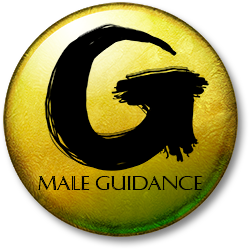
The Role of Zinc in Your Body: Benefits and Potential Concerns
Zinc, a naturally occurring mineral, plays a crucial role in our body’s various functions. It’s found in our cells and is instrumental in cell division, cell growth, wound healing, and breaking down carbohydrates. But like all nutrients, while it’s essential for our health, there can be concerns when consumed in excess. Let’s delve deeper into understanding the importance of zinc and the potential pitfalls of overconsumption.

1. The Benefits of Zinc
Immune System Support: Zinc is known for its role in bolstering the immune system. It aids in the proper functioning of immune cells, playing a pivotal role in antibody and white blood cell production.
Testosterone Maintenance: Zinc plays a pivotal role in maintaining healthy testosterone levels in the body. Testosterone, the primary male sex hormone, is vital for a range of physiological processes, including muscle development, bone health, and reproductive function. Zinc is essential for the production and secretion of luteinizing hormone (LH), a precursor to testosterone synthesis. A deficiency in zinc can lead to a decrease in LH, subsequently reducing testosterone levels. Moreover, zinc helps to inhibit the enzyme aromatase, which converts testosterone to estrogen, ensuring that a balance between the two hormones is maintained. As a result, adequate zinc intake is crucial for men to preserve optimal testosterone levels, particularly as they age or face external stressors that can depress hormone levels.
Proper Metabolism: Zinc is necessary for the body’s enzymatic reactions. It aids over 100 enzymes in their respective processes, from metabolism to digestion.
DNA Synthesis and Cell Division: As a necessary component in protein synthesis, zinc plays a vital role in the replication of DNA and cell division, promoting growth and healing.
Promotes Healthy Skin: Zinc aids in the structure of proteins and cell membranes, providing an essential line of defense against pathogens. It also plays a role in collagen synthesis, inflammatory response, and wound healing.
Enhanced Sense of Taste and Smell: Zinc is crucial for the development of taste and smell receptors.
Vision and Eye Health: High concentrations of zinc are found in the retina, and it’s involved in the process of vision. It also aids in the prevention of age-related macular degeneration.
2. Potential Concerns with Excessive Zinc Intake
Like many nutrients, while zinc is beneficial, there can be too much of a good thing. Excessive zinc intake can lead to several health concerns.
Zinc Toxicity: Consuming high levels of zinc, especially from supplements, can lead to nausea, vomiting, appetite loss, stomach cramps, diarrhea, and headaches in the short term.
Interference with Copper Absorption: Excessive zinc can decrease the body’s ability to absorb copper, another essential mineral, leading to copper deficiency. This can cause neurological issues and lower immunity.
Neuropathy: Overconsumption of zinc can lead to neuropathy, especially in high and prolonged doses. This is particularly concerning for the nervous system and can affect the large nerves in the body.
Reduced Levels of ‘Good’ HDL Cholesterol: High doses of zinc supplements can lower levels of the “good” HDL cholesterol.
Drug Interactions: Zinc can interfere with the effectiveness of certain medications, such as antibiotics and diuretics.
3. Recommended Intake and Sources
The recommended daily intake of zinc varies depending on age, sex, and life stage, but for adult males, it’s around 11mg, and for adult females, it’s about 8mg. Dietary sources of zinc include red meat, poultry, beans, nuts, whole grains, and dairy products. It’s always best to aim to get your nutrients, including zinc, from food sources before considering supplements.
Final Thoughts
Zinc is undeniably a powerhouse mineral that our bodies require for numerous processes. However, moderation is key. Always consult with a healthcare professional before starting any supplement regimen to ensure that it’s safe and suitable for your individual health needs.











